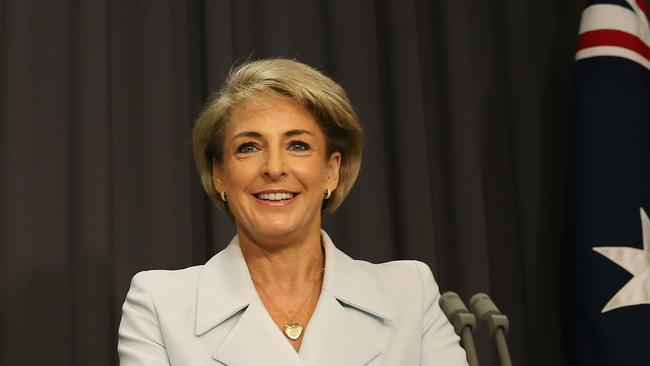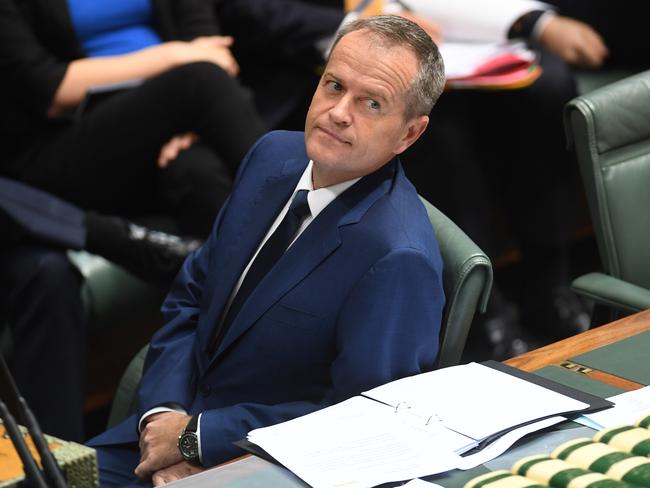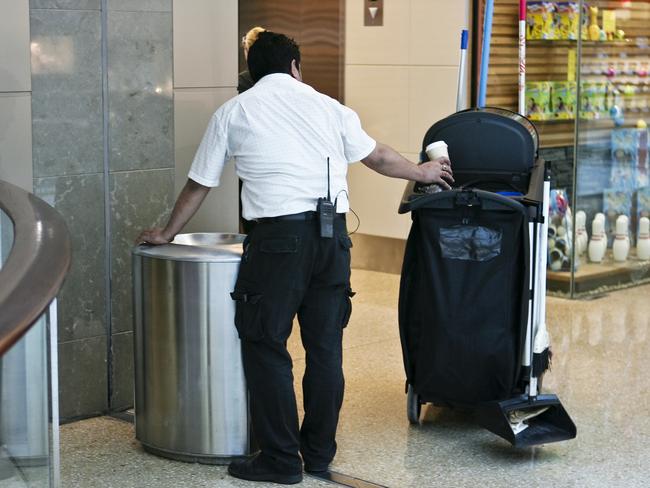Michaelia Cash: Turnbull’s new laws to ban under-the-table deals
IF you hire a real estate agent, you expect them to get the best price for your house. You’d be unhappy if, after the sale, you discovered they’d taken a secret payment from the buyers, writes Michaelia Cash.

Opinion
Don't miss out on the headlines from Opinion. Followed categories will be added to My News.
- Michaelia Cash: It’s time to return the ABCC
- Bullying bosses: Million-dollar fines as minister wages war
IF you hire a real estate agent, you expect them to get the best price for your house. Obviously you’d be unhappy if, after the sale, you discovered they’d taken a secret payment from the buyers.
If you hire a lawyer, you expect them to act in your interests, not take secret payments from the other party.
It should be no different for workers who join a union.
Union bosses have a responsibility to put their members first, not themselves.
In recent years, evidence has emerged of rafts of secret and corrupt payments between businesses and unions, collectively worth millions of dollars.
Often these payments were for highly questionable purposes, disguised by false invoices or marked as payments for “training” or other services never provided.
Some secret payments have been for personal gain.
For example, a former CFMEU boss was recently arrested after allegedly receiving more than $100,000 in renovations on his home, paid for by the company employing his union’s members.
Some secret payments boosted union coffers.
For example, the recent Royal Commission uncovered evidence of the CFMEU demanding “donations” for a drug and alcohol rehabilitation fund, from which money was siphoned.
Other payments were accompanied by lists of employee names, secretly joined to the union without their knowledge, to boost influence within the ALP.
These arrangements were often favoured by the Australian Workers’ Union, including under Bill Shorten’s leadership.
When Mr Shorten ran for Parliament in 2007, a building company even spent $32,000 hiring his campaign manager.

Surely this secret payment was a conflict, given the company was negotiating an enterprise agreement with Mr Shorten’s union.
In some cases, unions received payments while members lost theirs.
For example a deal between Cleanevent and Mr Shorten’s AWU stripped low-paid cleaners of penalty rates, overtime and shift loadings, while providing the union $75,000 in undisclosed payments.

In other cases, companies made payments to unions while laying off workers.
These secret payments are a blight on our workplace relations system.
Surely workers should have confidence negotiations between their union and employer are conducted honestly and fairly.
The Turnbull government is taking action to stop secret payments.
In future, only specified legitimate payments (such as genuine membership fees) will be allowed and these will need to be disclosed.
For payments or benefits provided outside these rules, serious criminal penalties will now apply.
Because it takes two to tango, the new laws will apply equally to employers and unions.
Whether you’re offering or paying a benefit, or soliciting or receiving it, you’ll be accountable.
This legislation will help clean up the unfair, secretive, and often corrupt payments.
Senator Michaelia Cash is the Minister for Employment


